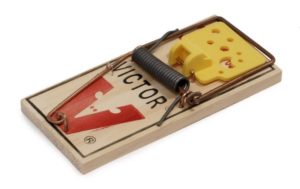A Business Decision vs. A Legal Decision
The question of whether you need a patent is more of a business decision than a legal decision. While a patent attorney can help you make that decision, by providing you with information regarding the costs and benefits of a patent, only you can make the final determination as to whether a patent is right for you or not.
Will a Patent Increase the Value of My Invention?
Think of a patent as a safe to store your valuables. If your invention (your valuables) is extremely valuable, a patent is probably right for you. If your invention is not valuable, a patent is probably not right for you.
Another way to look at a patent is as a value multiplier. If your invention is worth $100,000, a patent could possibly increase that value to $1,000,000 or more. Whereas if your invention is worth $0, no multiplier, not even a patent, can increase that value above $0. 
How Do I Determine the Value of My Invention?
As you might imagine, most inventors believe their inventions are extremely valuable. So how do you place a fair value on your invention? While there is no precise formula, it is useful to consider things like how much money other people are willing to invest in your invention. If you have a contact at a major distributor who is interested in writing you a royalty check today, your invention has value. Conversely, if no one but you is willing to put their own money behind your invention, your invention may not have much value.
Catch-22
One problem inventors have is how do you find out how much someone is willing to invest in your invention without disclosing your invention first. While you may be be able to convince a potential investor to sign a confidentiality agreement, most will not. The problem then becomes that if you disclose your invention outside of a signed confidentiality agreement, you run the risk of possibly losing the right to patent your invention down the road. While some counties have disclosure grace periods, this is not always the case. And once your invention enters the public domain, you lose the right to patent it forever.
Since patents can run $7,500 to $30,000 or more, you are often left in a Catch-22. You do not want to spend the money on a patent application until you get an investor, but the investor will not talk to you until you file the patent application.
Typically, for a new inventor, the best course of action is to meet with a patent lawyer. Many patent lawyers provide an initial free consultation to give you the answers you need to make the business decision that is right for you.
Do Your Research
Patents, like the patent lawyers (see here) who write them, are not all created equal. For a given invention, two different patent lawyers will get you two different patents. More often than not, the better patent lawyer will get you the better patent. However, while the highest priced patent lawyer is not always the best patent lawyer, the lowest priced patent lawyer is likely the lowest priced for a reason. To know how to get a lawyer for your issue here is a site where you can view it and understand the process. The legal experts in Delaware area practicing lawyers for criminal defense are there to help and guide you through your legal doubts.
Even the best patent lawyer in the world cannot guarantee they can get you a great patent on your invention. But you can be quite certain that if a bad patent lawyer does get you a patent, it will be easier for competitors to avoid infringing that patent, than if you had the patent prepared by a more competent patent lawyer.
Thankfully, if you do your research, you should be able to find a great patent lawyer willing to offer you an initial free consultation to answer the questions you need to take the next step toward protecting, or not protecting, your invention.





Recent Comments